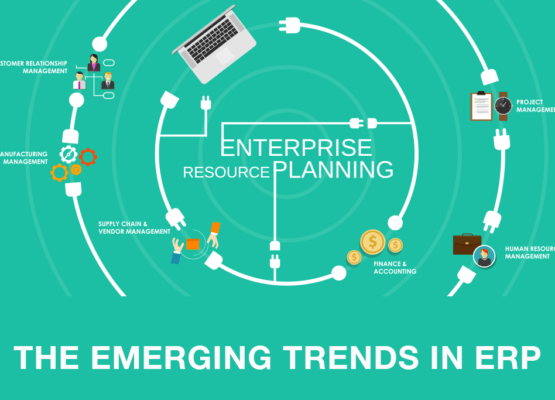EMERGING TRENDS IN ERP

Enterprise Resource Planning (ERP) can be defined as a business management software that helps users store and manage their business data. This suite of integrated applications provides enterprises to streamline and improve their business operations. ERP is the most suitable option for demonstrating value by delivering real-time information to all corporate employees across departments.
THE PRESENT SCENARIO
ERP solutions have evolved and expanded their reach to support a plethora of business functions. Office functions like sales force automation ( SFA), e-commerce, and marketing automation are part of ERP as back-end processes like HR, accounting, procurement, and manufacturing. As organizations evolve and their dependence on ERP steadily increases, let us look at the emerging trends in ERP.
CLOUD ERP
Organizations adopt cloud ERP to take advantage of lower costs, more straightforward deployment, new functionality, elasticity, reduction in the need for internal IT resources, and the relative ease of adding users or functions to grow business. The present situation has accelerated the need to shift from on-premises software to cloud ERP as it enables employees to work from anywhere with an internet connection.
AI- POWERED INSIGHTS
AI can deliver significant benefits, including more insights and improved processes. AI and machine learning capabilities embedded into ERP systems work behind the scenes to assist businesses to meet the increased demand for personalization.
PREDICTIVE ANALYTICS
There is a fast-growing trend to use predictive analytics to uncover and address what is likely to happen in the future. Organizations can optimize resources and strategize to deal with future risks.
MOBILE ERP
ERP solutions are evolving to provide access to critical business data on the go. This enables employees to conduct both back-end and front-end tasks wherever they are. It also encourages collaboration for dispersed workforces in different time zones. Mobile ERP provides overall benefits like remote access, improved productivity, increased agility and accurate data capture.
TECHNOLOGY INTEGRATION
Although ERP is the prime element in an organization’s digital transformation, it is only a part of a more significant investment in technology. Organizations are integrating their business applications with other new technologies to improve processes. For example, some enterprises integrate ERP with e-commerce to improve online order workflows, updating inventory levels, automatically triggering order fulfilment and recording payments.
THE FUTURE OF ERP
Acceleration in the transition to cloud ERP is foreseen. Those enterprises that have already invested in cloud ERP will look for better utilization of the power of the cloud. Optimization of ERP for remote work will continue. Further expansion of ERP supply chain management capabilities is expected. This would help organizations against supply chain disruptions or rapid changes in the global economic scenario.
If you are looking at streamlining your business to meet future challenges, Data Direct is the answer. We can help you to fulfil all your productivity and efficiency requirements with our ERP integration services. What’s more, we will help streamline your business operations to enhance both your top-line and bottom-line.

